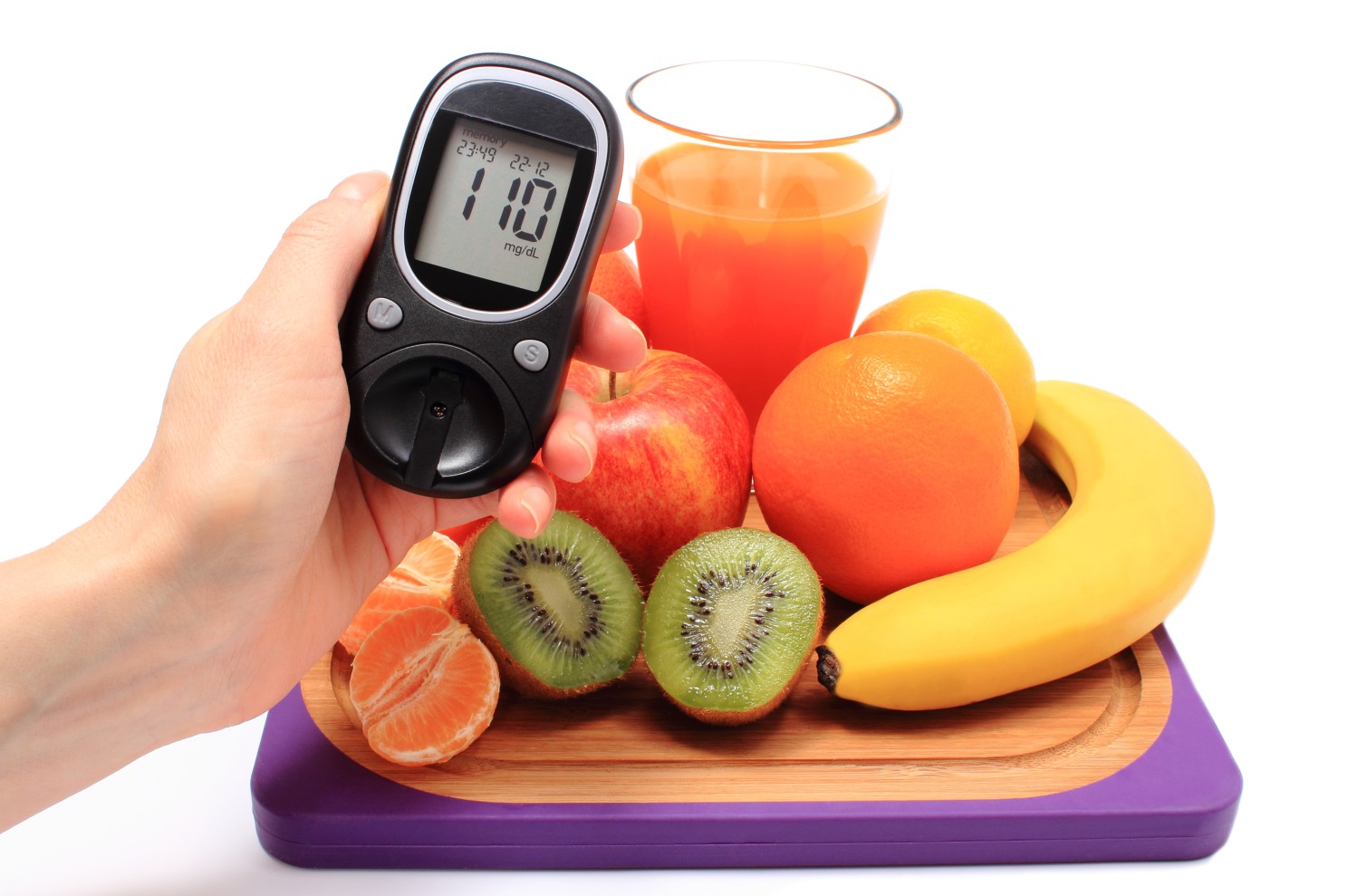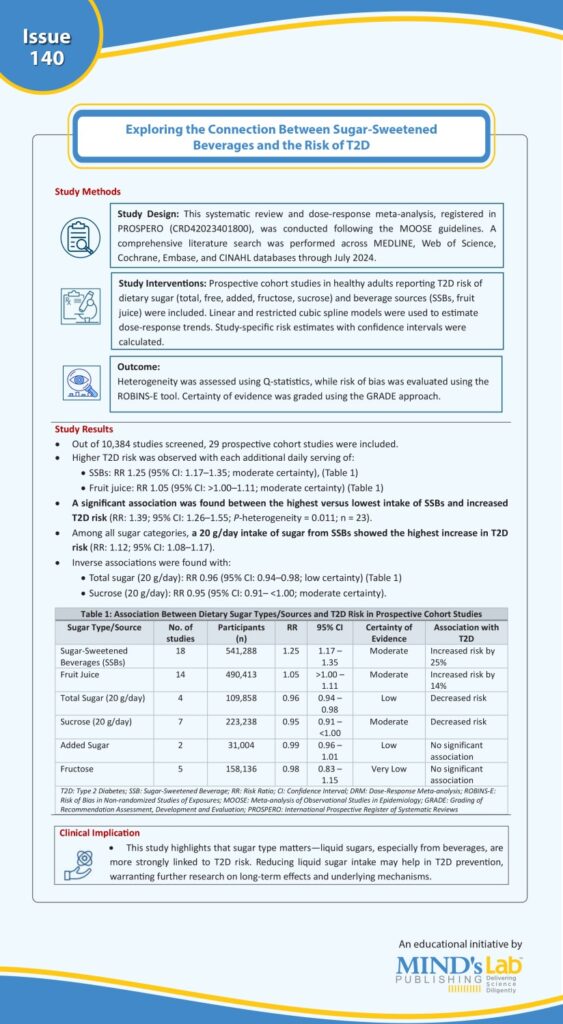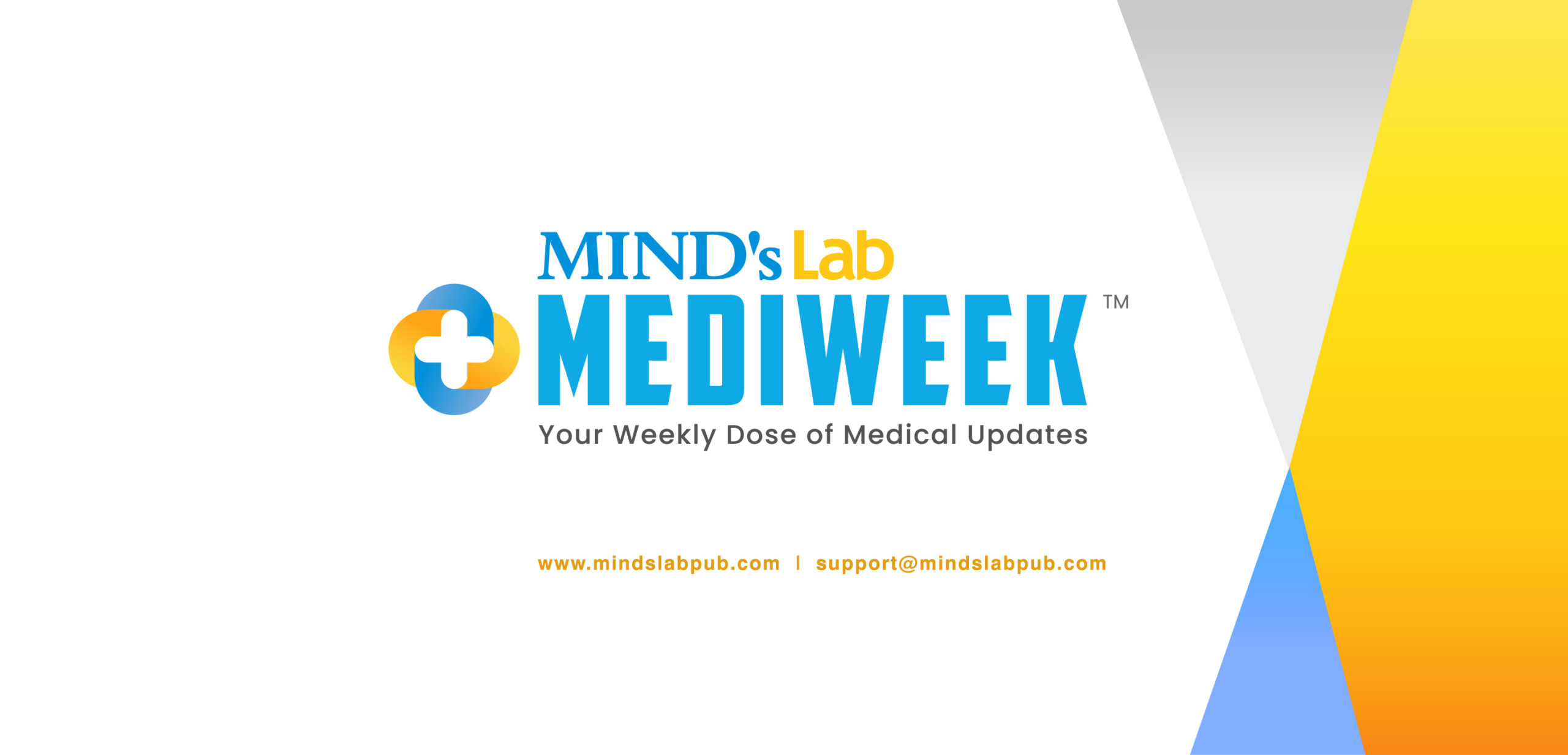
Reducing the global burden of type 2 diabetes (T2D) is a major public health priority. Dietary sugar intake is frequently linked to T2D risk, but inconsistencies exist based on sugar type, source, and quantity. Strong evidence shows that sugar-sweetened beverages (SSBs) are significantly associated with increased T2D risk, which has led to public health recommendations focused on reducing their intake. However, this focus overlooks other forms of dietary sugars—such as total, added, free sugars, sucrose, and fructose—whose relationships with T2D remain less clear. Some studies suggest fructose-containing sugars may not increase cardiometabolic risk regardless of form, but findings are inconsistent. The impact of fruit juice, often perceived as healthier, is also not well understood in comparison to SSBs. Furthermore, the threshold beyond which sugar intake becomes harmful is still unknown.
Dose-response meta-analysis (DRM) is the preferred method for assessing such associations across all exposure levels, allowing detection of risk per unit of intake and potential nonlinear trends. Despite available data for SSBs, more evidence is needed for other sugar types to guide effective and comprehensive dietary guidelines for T2D prevention.
A study by Della Corte KA et al., published in the journal “Advances in Nutrition”, aimed to investigate the dose-response relationship between various types and sources of dietary sugar and incident type 2 diabetes (T2D) risk. A systematic review and dose-response meta-analysis of 29 prospective cohort studies was conducted, including sugars from SSBs, fruit juice, total, free, added sugars, sucrose, and fructose. Each additional daily serving of SSBs (n = 541,288) and fruit juice (n = 490,413) was associated with higher T2D risk: RR 1.25 (95% CI: 1.17–1.35) and RR 1.05 (95% CI: >1.00–1.11), respectively. Conversely, 20 g/day intakes of total sugar and sucrose were modestly inversely associated with T2D (RR: 0.96 and 0.95; low to moderate certainty). The study concludes that sugar consumed as a beverage increases T2D risk, while total sugar or sucrose intake may not consistently elevate risk (See Graphic).

(Source: Della Corte KA, Bosler T, McClure C, Buyken AE, LeCheminant JD, Schwingshackl L, Della Corte D. Dietary sugar intake and incident type 2 diabetes risk: A systematic review and dose-response meta-analysis of prospective cohort studies. Advances in Nutrition. 2025:100413. Doi: 10.1016/j.advnut.2025.100413.)
